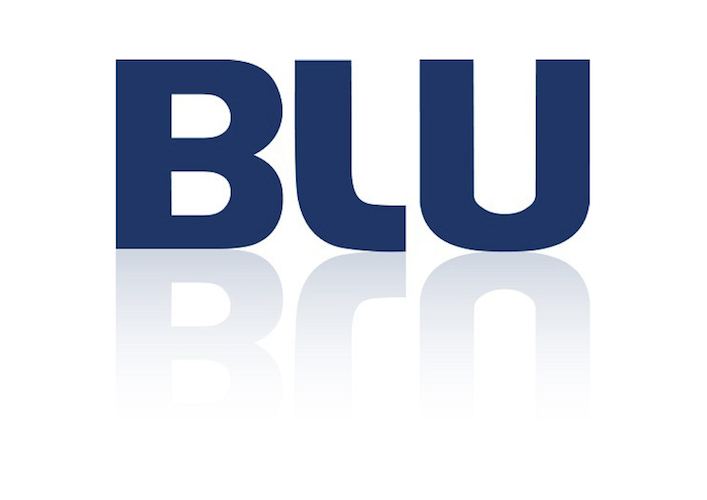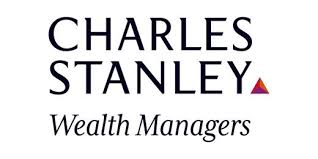This month:
Eurozone economic woes continue to cause concern this month, with these extending far beyond Brexit. Elsewhere, the performance of gold and US equities have provided salient lessons for investors looking to secure long-term capital growth.
Expert investment views:
Hard numbers take the shine from gold’s “safe haven” status
Investors urged to remember eurozone risks beyond Brexit
Energy, IT and utilities offer relative safety among European equities
Consolidation rather than recession believed to be likelier scenario
US equities show how short-term thinking harms long-term capital growth
A “new regime” emerges for the global economy and financial markets
1. Our thoughts on gold
Insights from:

It is a common misperception that the entire amount of all the gold that has ever been mined since the Egyptians some 2000 years ago, can fit into an Olympic size swimming pool. In fact, it would take 3.27 swimming pools. Now that we have solved one of life’s great mysteries, we can have a look as to whether we should buy some of this oh-so-precious metal at this time. Currently trading at about $1,300 an ounce, the price of gold is exactly where it was five years ago. During this time, the US stock market is up about 65% and pretty much all other asset classes have followed suit.
Currently trading at about $1,300 an ounce, the price of gold is exactly where it was five years ago. During this time, the US stock market is up about 65% and pretty much all other asset classes have followed suit
We have also had a few global market jitters, not least of which in the last quarter when the global stock markets lost nearly 20% across the board. What did gold do? Not much, eking out a measly 5% return, when we thought the world had come to an end. And not much reward for all the years of paying storage, not receiving dividends and of course, missing out on one of the great market rallies of our time.
It begs the question (in the immortal words of Frankie Goes to Hollywood): “What is it good for?” I can understand buying physical gold, putting it into a vault and knowing that there is a store of value when the rest of the world is growing vegetables. But as a means of diversifying our portfolio, I have to admit, I really don’t see the point. Have I mentioned that all the world’s gold can fit into 13 London double-decker buses?

Christian Armbruester
Chief Investment Officer at Blu Family Office
2. Eurozone economic woes warrant caution
Insights from:

Many investors are understandably preoccupied with Brexit and the effect on UK assets. Yet the health of the eurozone is also a concern, and we hold a cautious view towards continental share markets.
As with the UK, there is substantial political risk. There are European Parliamentary elections in June and then the choice of a new Commission later in the year. Moreover, the German economy, the car industry in particular, has already showed itself to be vulnerable to the slowdown in Chinese growth. Eurozone GDP growth was just 0.2% in the final quarter of last year, which means the economy expanded by only 1.8% for 2018 as a whole. That’s down from the 2.4% pace of growth seen back in 2017.
The economic situation could worsen further if President Trump threatens an EU phase of his trade war, targeting EU tariffs on food and cars
The economic situation could worsen further if President Trump threatens an EU phase of his trade war, targeting EU tariffs on food and cars. The US president is currently sitting on a report by Commerce Secretary Wilbur Ross into whether imported vehicles posed a “national-security risk”. Reports from Washington suggested that the study had provided President Trump with a “legal rationale” to impose heavy new tariffs on foreign cars as soon as this spring. Such a move is likely to hit the German economy hard, although it remains unclear whether any action will be taken.
Valuations now reflect a lot of this bad news – and we need to weigh up how much. At some point European equities could start to offer very appealing value, but perhaps not just yet.

Rob Morgan
Pensions & Investment Analyst at Charles StanleyDirect
3. Unending uncertainty
Insights from:

It goes without saying that this is a turbulent time for Europe, both politically and economically. Brexit negotiations continue to take centre stage in the UK, but we should not forget that many other factors are weighing heavily on business and consumer sentiment across the continent. Individual economies are struggling, and the highs and lows of Sino-US relations and tariff impositions have started to spill over into European financial markets.
The UK aside, developments in two of the eurozone’s three biggest economies, namely Italy and Germany, are particularly noteworthy. Italy finds itself in the midst of a recession and German growth is flat. Both have recently shown signs of stabilisation; car production in Germany has rebounded, while a budget agreement between Italy and the European Commission has boosted the prospect for growth. While this is encouraging, we will be closely monitoring broader eurozone data to see if this translates into an economic recovery.
Europe’s so-called “temporary slowdown” is beginning to look more chronic than acute, with external and geopolitical risks continually stifling sentiment
Against this uncertain backdrop, the ECB’s downgraded economic forecast suggests it sees risks to new growth. Indeed, Europe’s so-called “temporary slowdown” is beginning to look more chronic than acute, with external and geopolitical risks continually stifling sentiment.
In the shorter term, the upcoming European Parliamentary elections could be particularly eventful. Brexit uncertainty and the potential for the UK’s participation as an outgoing member may well add an element of disarray to the process. Perhaps more important, though, will be the clash between rising populist and nationalist movements and the continent’s pro-EU forces.
This confluence of factors presents a complex mix of challenges for the eurozone. We therefore remain neutral on eurozone equities, and our most preferred sectors are energy, IT, and utilities.

Dean Turner
UK Economist at UBS Wealth Management

Top Tip
This month’s experts provide a timely reminder that short-term thinking can really hurt long-term capital growth. Helping investors avoid knee-jerk reactions to developments in the markets is actually one of the areas where professional advisers add most value.

Lee Goggin
Co-Founder
4. A tale of two cities
Insights from:

The past three months have seen the strongest start to the year since the financial crisis. The FTSE 100 was up by 8% in total, with other global equity markets posting double digit returns. But while the bounce in markets might be leaving investors with great expectations for the coming year, we would cite the start of another Dickens classic, “A Tale of Two Cities”.
Dickens opened his novel by saying, “It was the best of times, it was the worst of times” and, in many ways, investors see a similar outlook for markets today. Those inclined to see the best of times see a world where growth remains positive, with financial authorities like the Federal Reserve prepared to support the economy and markets by leaving interest rates on hold. The market is even pricing in the possibility that US interest rates are cut, though this seems unlikely in our view.
We do not believe the global economy is heading for a recession, something which should be of reassurance to our clients. But we could be in for a period of consolidation
People fearing the worst of times cite a larger-than-expected slowdown in China’s economy, which is having a significant knock-on impact on Europe and Japan. Italy has entered a technical recession, and Germany could later this year, if the expected recovery from 2018’s disruptions does not materialise. For the meantime, however, Chinese stimulus and a good outlook for employment and wages is keeping serious concerns at bay.
We do not believe the global economy is heading for a recession, something which should be of reassurance to our clients. But we could be in for a period of consolidation. The strong rise in share prices and reduced earnings over the past three months mean valuations have risen to the upper end of their twelve-month range. While share prices can always become more expensive, companies will probably have to deliver in their financial results if we are to see further significant share price gains, absent a material – and for now speculative – upturn in the global economy.

Jonathan Raymond
Investment Manager at Quilter Cheviot Investment Management
5. The huge V in US equities
Insights from:

Three months into 2019, every major stock market is comfortably up for the year and several US indices are very close to last September’s all-time highs. This is a huge shift from late 2018, when after the worst December on record investor sentiment was at rock-bottom.
The S&P 500 is the leading US equity index and a powerful barometer of global investor sentiment. In September 2018, the market capitalisation of its companies was US$25.7 trillion – almost 30% of the global total. The S&P 500 fell by 19.8% (US$5.2 trillion) over 65 trading days between 20 September and 24 December 2018, one of its biggest-ever falls outside of a US recession. This was a destruction of wealth, at least on paper, on a scale the world hardly ever sees.
Over the next 59 trading days the S&P 500 rose by 21.4%, and its market capitalisation gained US$4.2 trillion. Millions of investors worldwide were, suddenly, a great deal richer.
Many of those investors sold after the market had fallen a long way, and only bought back in after the market had already risen. Their active trading through the huge V in US equities lost them money
Much of the credit for the rebound in markets and investor sentiment has been attributed to the Federal Reserve. Chair Jay Powell announced a pause in the interest-rate hiking cycle at the end of January. But while this certainly boosted investor confidence, the rally began several weeks before Mr Powell opened his mouth. Why?
We believe the explanation is simple – the familiar companions of human fear and greed. Through December 2018, many investors sold stocks due to a rash of scary news headlines… fears about trade wars, problems in China, an impending US recession etc. Then, when markets began to rally after Christmas and into January, greed and the fear of missing out pushed those investors to begin buying again.
This episode demonstrates how short-term thinking can hurt long-term capital growth. Many of those investors sold after the market had fallen a long way, and only bought back in after the market had already risen. Their active trading through the huge V in US equities lost them money.

Terence Moll
Chief Strategist at Seven Investment Management
6. Emerging markets coming to the fore
Insights from:

Last month we invested in a global emerging markets fund for the first time in five years. Bank of America’s global fund manager survey suggests the US dollar valuation is at a 16-year high. If the currency were to weaken, this should provide a meaningful tail wind for emerging markets as a whole.
Of course, we have always had exposure to emerging markets – we own a number of well-known global companies with large parts of their income generated in India, China and other emerging countries. And we have been overweight Asia ex-Japan for three years, with a bias to funds with significant exposure to China, which is a growing component of the MSCI Emerging Market Index. It means we have been enjoying the benefits of exposure to some of the world’s fastest growing economies, through developed market companies with strong governance and transparency.
Bank of America’s global fund manager survey suggests the US dollar valuation is at a 16-year high. If the currency were to weaken, this should provide a meaningful tail wind for emerging markets as a whole
Our chosen global emerging markets fund offers us something extra – a reliable and quick way to introduce into portfolios well-researched companies that are actually domiciled in emerging markets. It also gives exposure to parts of the world, like Latin America, not previously represented.
But we are remaining focused: the fund has fewer than 40 stocks and includes only firms with robust corporate governance and capital structures. So, it is in line with the way we choose the direct equities that form the core of our portfolios – seeking nothing but the best.

Mark Richmond-Watson
Portfolio Manager at James Hambro & Partners
7. Be flexible when considering strategic moves
Insights from:

We continue to be constructive on the outlook for certain equity markets and a range of fixed interest investments around the world, despite the fact that valuations have become more expensive after the recent rise across markets. In addition, it has been a rewarding start to the year for our more “niche” investments in emerging market debt, gold equities and infrastructure assets, and we have confidence that such investments should continue to do well, even if global economic growth does not accelerate from current levels.
Our core view is that there is a “new regime” for the global economy and financial markets from that which we experienced between 2009 and 2018, and we need to be more respectful of growing volatility and rising risks – whilst remaining alert to any opportunities that come our way in an environment in which it is increasingly beneficial to be flexible and active with one’s investment selections.
Our core view is that there is a “new regime” for the global economy and financial markets from that which we experienced between 2009 and 2018, and we need to be more respectful of growing volatility and rising risks
Our portfolios are positioned with a “neutral with a hint of caution” stance, with high levels of diversification and a moderate cash buffer. This helped to partially protect against the volatility of all major asset markets last year. In recent months we have been moderating our risk allocations tactically and have temporarily had more of a “risk on” approach as we started 2019; we have subsequently reduced risk as markets have risen.
We are continuing to operate with a flexible mind-set as to our next strategy moves, as we head deeper into this unpredictable year.

Thomas Becket
Chief Investment Officer at Psigma Investment Management
Important information
The investment strategy explanations contained in this piece are for informational purposes only, represent the views of individual institutions, and are not intended in any way as financial or investment advice. Any comment on specific securities should not be interpreted as investment research or advice, solicitation or recommendations to buy or sell a particular security.
We always advise consultation with a professional before making any investment decisions.
Always remember that investing involves risk and the value of investments may fall as well as rise. Past performance should not be seen as a guarantee of future returns.







